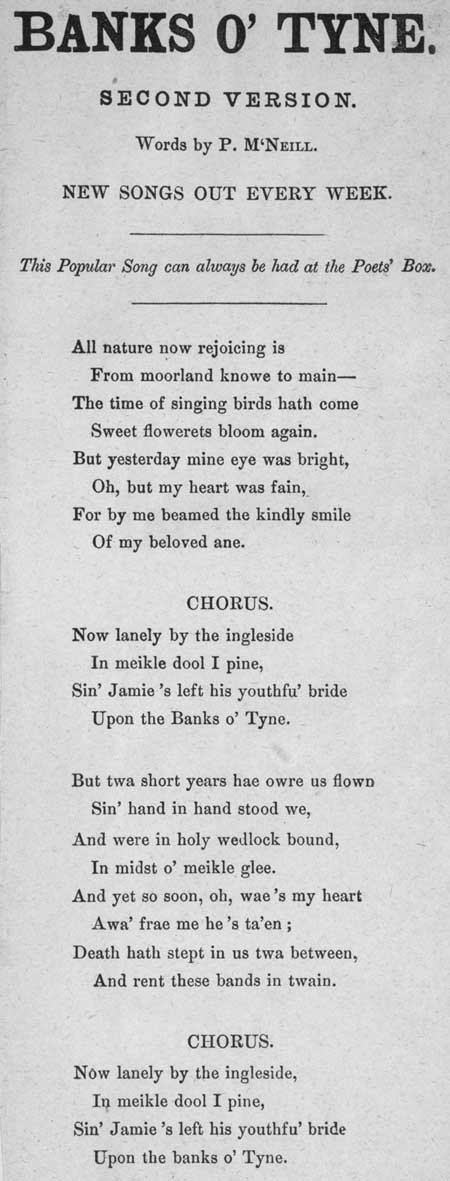
 |
| home | background | illustrations | distribution | highlights | search & browse | resources | contact us |
Broadside ballad entitled 'Banks O' Tyne' |
CommentaryVerse 1: 'All nature now rejoicing is / From moorland knowe to main / The time of singing birds hath come / Sweet flowerets bloom again. / But yesterday mine eye was bright, / Oh, but my heart was fain, / For by me beamed the kindly smile / Of my beloved ane.' This version of the 'Banks O' Tyne' was written by P. McNeill and probably sold at the Poet's Box, Dundee for one penny. Although this broadside does not include a date, it was most likely published in the late nineteenth century. A first version of this song was published in 'The battle of Preston, Gaffer Gray or Knox and his times and other poems and songs' written by P. M'Neill of Tranent. This was probably Peter McNeill (1839-1929) who wrote a number of works on the East Lothian area. The River Tyne in question relates to the river which flows through Haddington and enters the sea at Dunbar. It is not clear what the connection between the different Poet?s Boxes were. They almost certainly sold each other?s sheets. It is known that John Sanderson in Edinburgh often wrote to the Leitches in Glasgow for songs and that later his brother Charles obtained copies of songs from the Dundee Poet?s Box. There was also a Poet?s Box in Belfast from 1846 to 1856 at the address of the printer James Moore, and one at Paisley in the early 1850s, owned by William Anderson. Early ballads were dramatic or humorous narrative songs derived from folk culture that predated printing. Originally perpetuated by word of mouth, many ballads survive because they were recorded on broadsides. Musical notation was rarely printed, as tunes were usually established favourites. The term 'ballad' eventually applied more broadly to any kind of topical or popular verse.
|
Probable period of publication:
1880-1900 shelfmark: L.C.Fol.70(117b)

|